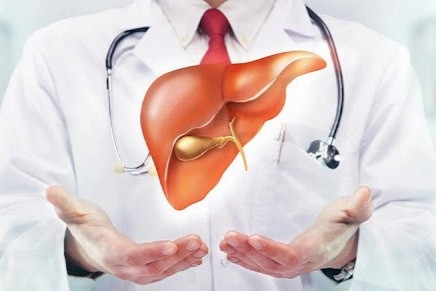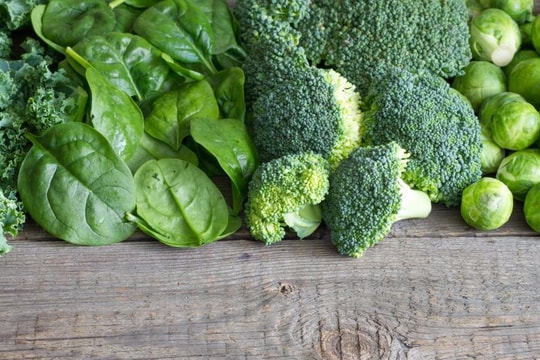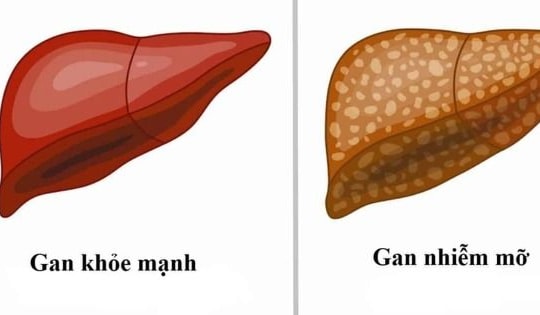Coffee is a 'good friend' of the liver, preventing many diseases that Vietnamese people often encounter.
Studies show that coffee can reduce the risk of chronic liver disease, limit the development of liver cancer, and also provide good support for people who already have serious liver disease.
Coffee has long been an indispensable part of the lives of millions of people around the world. In addition to its ability to help increase alertness, many scientific studies have shown that the habit of drinking coffee can bring many health benefits, especially for the liver.
Reduce the risk of cirrhosis
A remarkable study published inJournal of Hepatologyshows that coffee consumption is strongly associated with a reduced risk of chronic liver diseases, including cirrhosis and liver cancer.

Coffee is a popular drink (Photo: Getty).
In this study, scientists followed more than 400,000 people over a long period of time and found that people who drank 2-3 cups of coffee a day had a 38% lower risk of cirrhosis than those who did not drink coffee.
Antioxidants and bioactive compounds in coffee, including chlorogenic acid, cafestol, and kahweol, are thought to protect liver cells from damage.
Coffee may also inhibit inflammation and fibrosis in the liver, helping to reduce the risk of chronic diseases.
Good for people with fatty liver
Non-alcoholic fatty liver disease (NAFLD) is becoming an increasing health problem globally, especially among people with sedentary lifestyles and unhealthy diets.

Coffee brings many benefits to liver health (Photo: Getty).
A study published inAlimentary Pharmacology & Therapeuticsshows that people who consume coffee regularly are likely to have a reduced risk of developing fatty liver disease and a reduced severity of the disease.
Caffeine in coffee can increase the breakdown of fat in the liver, helping to reduce fat accumulation in the liver. In addition, coffee also helps increase insulin sensitivity, reducing the risk of developing diabetes - a high risk factor for NAFLD.
Reduce the risk of progression of hepatitis B
A study conducted in China and published inJournal of Clinical Gastroenterologyin 2020 showed that drinking coffee may help reduce the risk of hepatitis B progression.
In people with chronic hepatitis B, coffee consumption has been shown to reduce the risk of cirrhosis and liver cancer associated with hepatitis B.
The polyphenol compounds in coffee have strong anti-inflammatory effects, helping to reduce damage caused by hepatitis. Coffee can inhibit the growth of liver cancer cells through the regulation of genetic factors and cell signaling.
Reduce the risk of liver cancer
Liver cancer is one of the most dangerous cancers and often has a poor prognosis.
However, a large study conducted by a research team in the UK, published inBritish Medical JournalIt has been found that people who drink 3-5 cups of coffee a day have a 50% lower risk of liver cancer than those who do not drink coffee.
Coffee contains compounds that can prevent oxidation and DNA damage. These are two important factors that contribute to the development of cancer.
In addition, coffee can support the liver in metabolizing and eliminating toxic substances, contributing to reducing the risk of cancer.
Benefits for patients with cirrhosis
Cirrhosis is the final stage of many chronic liver diseases, and treatment of cirrhosis is often difficult. However, according to a study byHepatologyDrinking coffee may help slow the progression of cirrhosis and even reduce the risk of death in people who already have the disease.
People who drink 2-3 cups of coffee per day have a 30% lower mortality rate than those who do not consume coffee.
Coffee helps reduce inflammation and limit the growth of fibrous tissue in the liver, improving overall liver function.
Recommended dosage
Although many studies have shown the benefits of drinking coffee for the liver, consuming too much can also bring about some side effects, including: anxiety, insomnia and increased blood pressure.
Experts recommend that you should maintain moderate coffee consumption, about 2-3 cups per day, to achieve optimal benefits without experiencing unwanted side effects.




